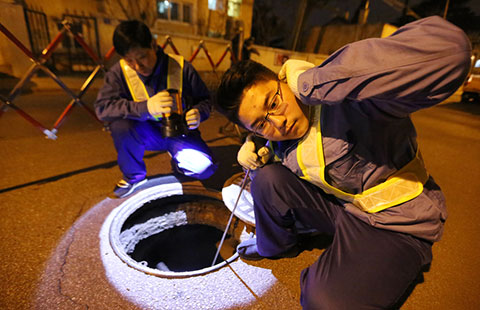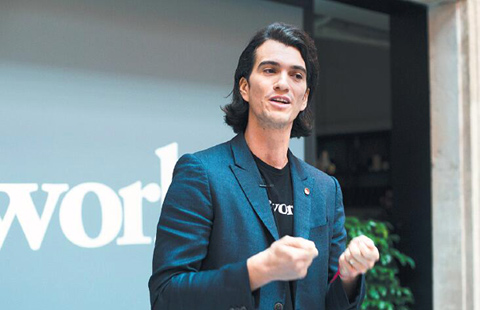Battle lines drawn over automakers' calls for fuel review
Automakers enjoying lucrative sales of trucks and sport utility vehicles are hoping United States President Donald Trump makes good on his vows to deregulate.
Environmental groups are saying fuel efficiency standards won't be watered down without a legal challenge.
"We'll see him in court," Dan Becker, director of the Safe Climate Campaign, said of the group's planned response if the rules are revisited. "There are a lot of reasons to keep the standards in place and there will be a fight."
Eighteen auto industry executives sent a letter to Trump on Friday, asking him to reinstate an Environmental Protection Agency review of fuel economy regulations through 2025 that they say was unfairly cut short during the final days of the Obama administration.
That letter could be the opening act in a potential drawn-out battle in Washington and in US courts as environmental groups consider suing to stall or derail any effort to lower the targets.
"The primary issue here is we do not see any kind of technical basis for weakening the standards," said Roland Hwang, director of the energy and transportation program at the Natural Resources Defense Council.
"We're looking at our options," he said, declining to say definitively whether the environmental advocacy group would file litigation.
The issue auto executives raised in their letter recently was the review process for the nation's fuel efficiency standards.
The companies and then-president Barack Obama struck a deal in 2011 to double average fuel economy of vehicles to 54.5 miles per gallon by 2025, with the caveat that a midterm review would determine whether the standards for the final years of the program were feasible.
Automakers say falling gasoline prices have squelched demand for the most fuel-efficient vehicles, making it more difficult to achieve the standards.
Just a week before Trump took office, the EPA said it had concluded its review more than a year ahead of schedule and the rules didn't need to be changed.
Oklahoma Attorney General Scott Pruitt, Trump's nominee to lead the EPA, told a Senate panel in January he planned to review the EPA's final determination that the 2025 auto rules should remain intact.
If the EPA revisits the midterm review, it won't necessarily come to a different conclusion than the one reached in Obama's final days in office.
That decision was the culmination of a rules evaluation that began last summer with the publication of a more than 1,200-page Technical Assessment Report that examined costs, technology effectiveness and other aspects of the standards.
Hwang called the review "one of the most thorough decision-making processes I've seen by an agency". The NRDC views automakers' request to reopen the review as a move to "politically meddle with what should be a science-based decision".
"I don't know what information they could bring to the table that hasn't been brought to the table already," he said.
Trump's push to ease regulatory burdens may create a window of opportunity for carmakers.
The letter, signed by chief executives including Mary Barra of General Motors, Mark Fields of Ford Motor and Sergio Marchionne of Fiat Chrysler Automobiles NV, said that "ignoring consumer preferences and market realities will drive up costs for buyers and threaten future production levels."
Automakers have only asked for the mid-term review to be reinstated. It's possible that Trump's EPA could seek major changes, such as weaker federal rules, so that carmakers have more cash to invest in the zero-emission cars they're required to sell in California.
Enacting new rules altogether would be a lengthy process.
If Trump does initiate a new round of rule-making on the EPA's 2022-2025 greenhouse gas standards, he's likely to do so as a joint exercise with the National Highway Traffic Safety Administration, which will then be writing fuel economy standards for those same years, said Jeff Holmstead, a former assistant administrator at the EPA and now a partner at Bracewell LLP in Washington.
"I don't think they'd completely eviscerate those regulations," Holmstead said. "But there are probably ways to make them more flexible and reduce the cost."
A formal rule-making process, complete with public notices and comment periods, would probably take at least a year. To change the rules, Pruitt would also need to provide a formal explanation on why he's scrapping Obama's so-called final determination.
Bloomberg

















